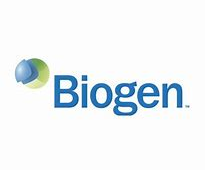biospaceApril 28, 2019
Tag: Alzheimer , recommendations
Earlier this week, Biogen reported out its first-quarter financial results, showing an 11% increase in revenues, hitting $3.5 billion. But in light of the company’s announcement in late March that it was dropping development of aducanumab for Alzheimer’s, analysts are speculating on what the company needs to do to stay profitable.

And the Alzheimer’s pivot wasn’t the only challenge, although that announcement resulted in a stock drop where the company lost $18 billion in value overnight. But one of the company’s top-selling drugs is Spinraza to treat a rare muscular disease called spinal muscular atrophy (SMA). Spinraza came on the market as the first viable treatment, but Novartis is developingits own drug, which in late-stage trials appears to be a one-and-done gene therapy, rather than an ongoing treatment like Spinraza. If Novartis’ Zolgensma is approved, it will likely be the therapy of choice for SMA Type 1 patients, although it is as of now not a treatment for all types of SMA like Spinraza is.
In addition, Biogen’s multiple sclerosis drug Tecfidera is facing strong headwinds from competitors.
Biogen had six drugs in development for Alzheimer’s, which are all extremely high-risk bets, and aducanumab was the lead compound there. Analysts had concerns about the company having so many eggs in that particular basket and those concerns have only grown.
"The problem is," SVB Leerink analyst Geoffrey Porges told the Boston Business Journal, "they’re like a baseball team with a bunch of singles and doubles, and then one big home-run hitter. The home-run hitter is gone, and now all we’ve got is singles and doubles. This is a critical period…. Every part of their business is facing challenges."
That’s led most investors and analysts to urge the company to buy some assets, the sooner the better, encouraging mergers and acquisitions (M&A).
In the company’s quarterly report, company chief executive officer Michel Vounatos, stated, "We continue to make meaningful progress diversifying our pipeline. We are building depth in neuromuscular diseases and movement disorders, and our proposed acquisition of Nightstar Therapeutics would provide us with two potentially first-in-class mid- to late-stage clinical assets in specialty ophthalmology. By the end of 2020 we expect readouts across our clinical programs in MS, progressive supranuclear palsy, ALS, Parkinson’s disease, pain, cognitive impairment associated with schizophrenia, epilepsy, stroke, and lupus."
And Vounatsos told the Boston Business Journal that the company always planned for growth even without aducanumab. "So as I said, the focus will remain on neuroscience based on the portfolio we have, but also on the adjacencies of all the programs we are developing for now and we’ll come back with more."
Although Vounatsos clearly wasn’t ruling out a big M&A, he wasn’t announcing anything either. Which doesn’t mean analysts don’t have their recommendations. The Motley Fool’s Cory Renauer recently suggested Biogen should acquire Neurocrine Biosciences and Sage Therapeutics, both of which would complement Biogen’s neurology pipeline. The Motley Fool’s Brian Orelli recommends Ionis Pharmaceuticals, a company that Biogen already has multiple partnerships with.
Neurocrine’s first drug, Ingrezza to treat tardive dyskinesia (TD), brought in $410 million last year. It has a partnership with AbbVie for Orlissa, which last year was approved to treat endometriosis pain, with expected broader approval for uterine fibroids expected. It also has a collaboration deal with Voyager Therapeutics for gene therapy for Parkinson’s disease.
Sage’s Zulresso for severe postpartum depression was recently approved. It also has another drug candidate for postpartum depression, SAGE-217, which is a novel, synthetic version of Zulresso’s active ingredient, but would be able to be taken as a capsule, rather than as a 60-hour non-stop infusion like Zulresso. SAGE-217 also has a shot at becoming a fast-acting antidepressant for acute treatment of major depressive disorder.
Ionis developed Spinraza and an acquisition would rid Biogen of the $238 million in royalties it paid Ionis last year, which are only expected to increase in the short-term. The two companies are partnered on three other neurology drugs currently in clinical trials and have a broader partnership that could lead to dozens of more drugs to be developed. The most promising is IONIS-SOD1Rx (BIIB067), which in Phase I trials lowered the level of SOD1 protein in patients with amyotrophic lateral sclerosis (ALS). They also have another ongoing development project for BIIB080 for Alzheimer’s, and another for ALS.
Will Biogen leap at any of these deals? Only time will tell. Biogen’s history of M&A has tended to be relatively small and strategic deals, rather than large and transformative.
Register as Visitor to CPhI China 2019!

-----------------------------------------------------------------------
Editor's Note:
To apply for becoming a contributor of En-CPhI.cn,
welcome to send your CV and sample works to us,
Email: Julia.Zhang@ubmsinoexpo.com.


Contact Us
Tel: (+86) 400 610 1188
WhatsApp/Telegram/Wechat: +86 13621645194
Follow Us:




 Pharma Sources Insight January 2025
Pharma Sources Insight January 2025


